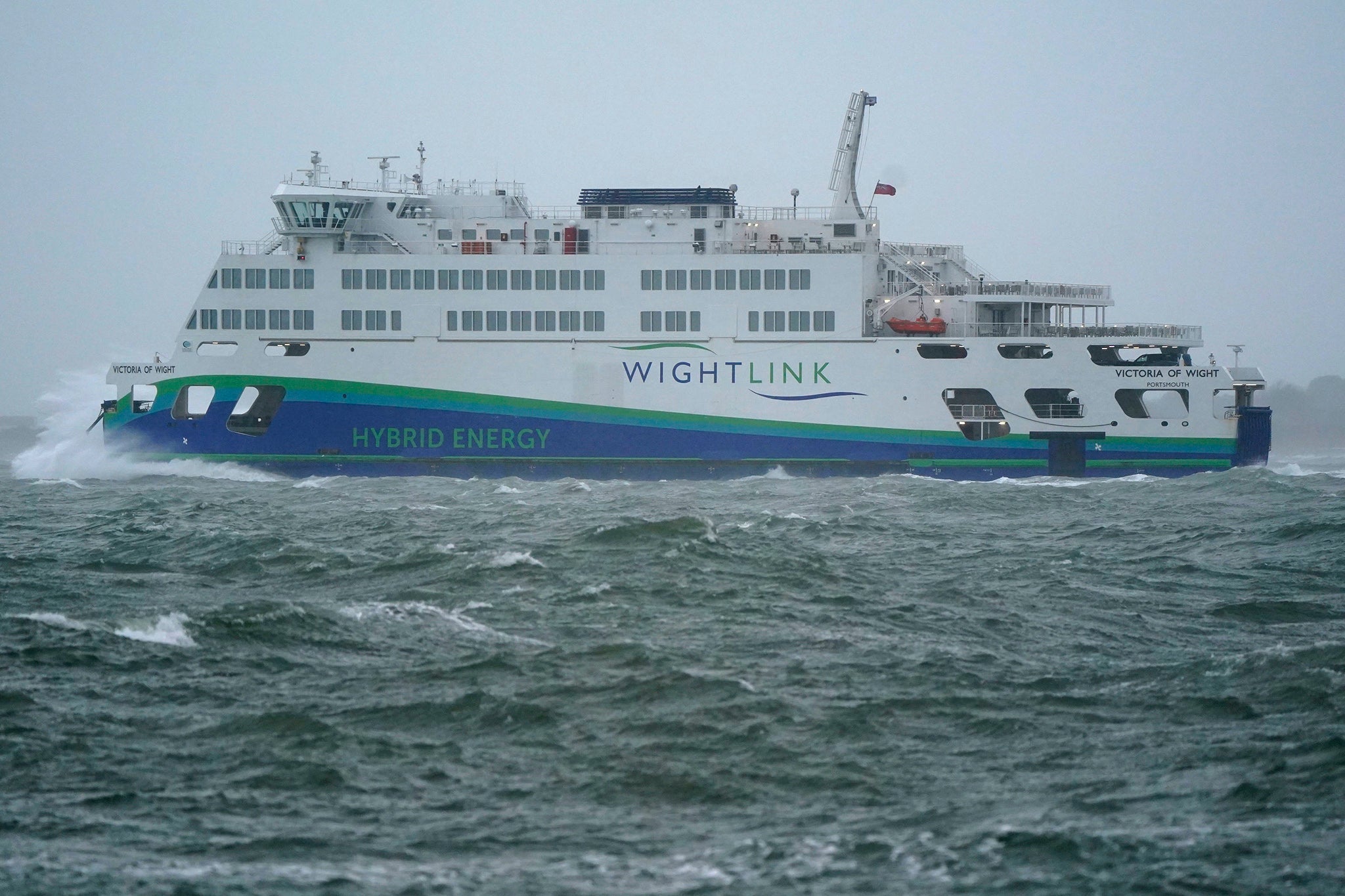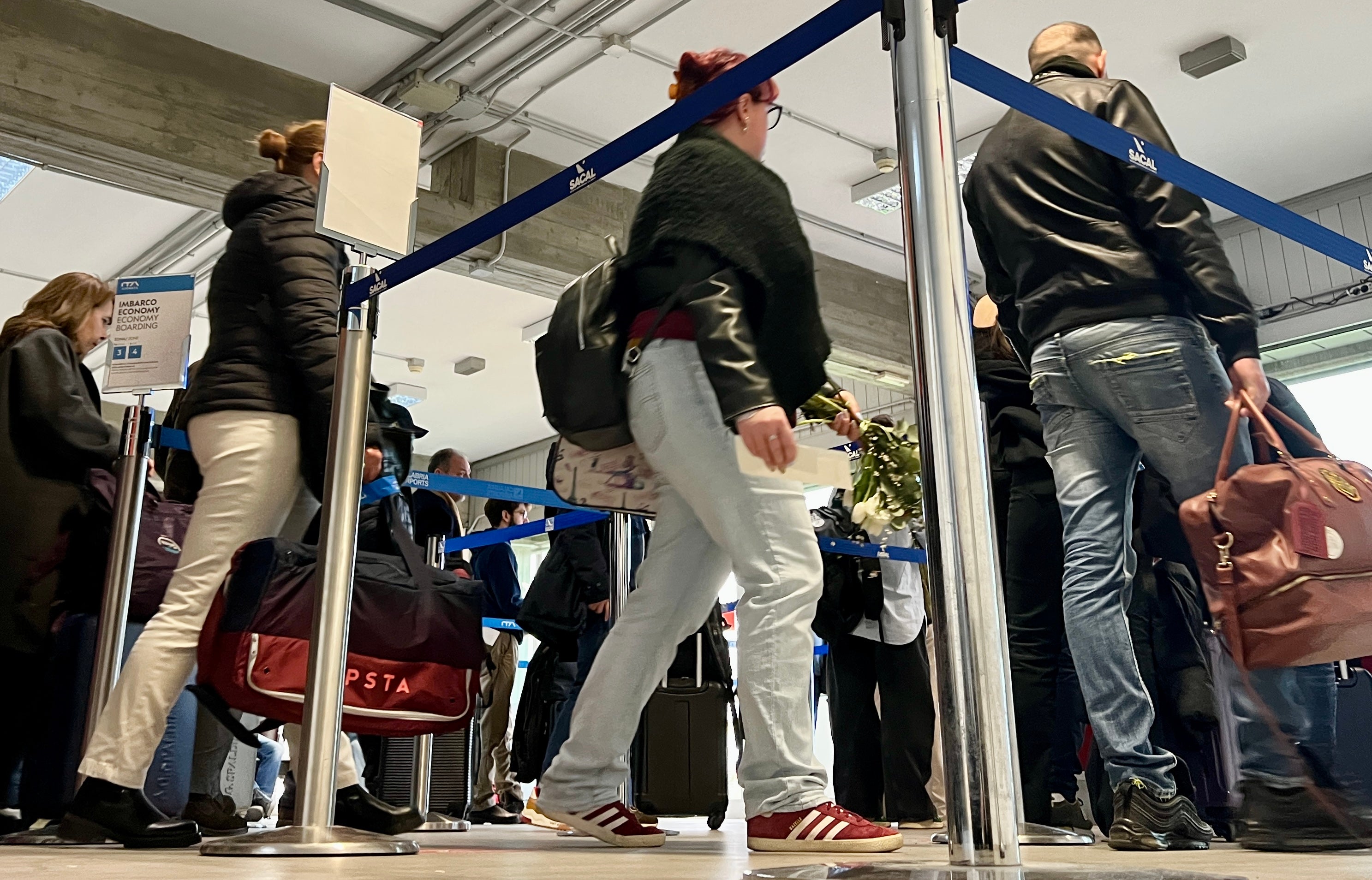How can I cut costs on the way to my transpacific cruise?
Simon Calder answers your questions on cancelled ferries, Border Force queues and Cyprus joining the Schengen area


Q Next year, we have the exciting prospect of a transpacific cruise starting in Sydney in April and arriving in Vancouver at the start of May. My dilemma is about how to get the best-value flights to fly into Australia and out of Canada. We want to fly to and from Birmingham (ideally) or London Heathrow, in business class, and also make a stopover in Singapore. I believe round-the-world tickets do not allow a “surface leap” from Australasia to North America. Is there a way around this? Otherwise, it involves single flights for each leg, which I imagine is very expensive. Do you have any advice on the most cost-effective way to do this?
Paul R
A Your voyage sounds splendid, and fortunately, you will be able to find good-value flights outbound to Sydney and inbound from Vancouver. Seeking a round-the-world flight with a gap in the middle is not necessary: Sydney to Vancouver is almost 8,000 miles as the Airbus flies.
A good travel agent will put together the following for you: out from Birmingham to Istanbul for a stopover of at least 24 hours. The reason for this: by breaking the journey, you will save, between you, around £400 in air passenger duty, which will more than pay for a hotel stay in this wonderful city.
Then take Turkish Airlines onwards to Singapore for a stay of as long as you wish (I recommend at least three full days, more if you can make it). Turkish Airlines also flies Singapore-Sydney. I have not tried business class, but I find economy on the airline very comfortable.
Coming back, the most likely option will be on the Turkish Airlines’ Canadian partner in the Star Alliance, Air Canada, for a nonstop Vancouver-London Heathrow flight.
Put all this through a professional agent – ask several to quote on what will be a lucrative booking. You may even get a bonus or two. Last time I visited Australia, Trailfinders organised some impressive extras such as free stays in Ibis hotels in a couple of cities.

Q You have written a lot about passengers’ rights when flights are cancelled or delayed. But do you have similar information about ferries? My Isle of Wight ferry was cancelled. I was unable to amend my £33 booking online as I was instructed to do. To avoid disruption to my planned weekend, I managed to book a crossing with a different ferry firm for £93 and arrived more or less on schedule. What compensation should I expect?
John M
A Air passengers’ rights are extremely pro-consumer; ferry travellers’ rights, less so. The Department for Transport (DfT) says: “Where there is, or the carrier reasonably expects, a delay of more than 90 minutes of the scheduled time of departure or cancellation of a ferry service, passengers have a right to … re-routing to the final destination at no additional cost, at the earliest opportunity, under comparable conditions.”
You were unable to rebook with the original firm, and instead booked with a rival operator – which appears to qualify as “re-routing”. So I believe you can reasonably be expected to be reimbursed for the extra £60 you spent. Because you arrived more or less on time, you will not be additionally compensated; the law stipulates a payout of 25 per cent of the fare paid for a delay of one to two hours, or 50 per cent for over two hours. Compare this with air passengers, who get a minimum of £220 after a delay of three hours – which could be 10 times the cost of their ticket. As with airlines, if the ferry firm is not responsible for the delay or cancellation, it does not need to pay out.
For future trips: if your ferry is cancelled, you are also entitled to accommodation up to a maximum of £70 per person per night. But this does not apply if the problem is caused by bad weather. In contrast, airline passengers stranded overnight are entitled to accommodation (with no financial cap) whatever the cause of the issue.

Q Once the electronic travel authorisation (ETA) is compulsory for all non-British nationals arriving in the United Kingdom, will there be separate Border Force queues for Britons and non-Britons on arrival in the UK?
That would be some recompense for the queues for entering the European Union: a short, fast queue for EU nationals and a separate (much slower) queue for non-EU nationals. I really hope this is the case: it will speed up the Eurotunnel queues for Britons at Calais – currently always a pain in the neck.
Stuart G
A The background to your question: the Home Office is rolling out the ETA scheme for all foreign visitors who do not enjoy the good fortune of being Irish. From 2 April 2025, Europeans will need an ETA, price £10, for travelling to the UK. The government says it is “a more streamlined, digital immigration system” that it claims “will be quicker and more secure for the millions of people who pass through the UK border each year”. I am not sure about that: visitors will need to go online, fill in a form and pay £10 ahead of arrival for a permit valid for up to two years.
But there is no possibility that the current UK border control arrangements will be modified to have a special lane devoted to British travellers. At present, the sort-of-fast lane, allowing the use of e-gates, is open to citizens from a long list of nations. They comprise people from the UK, the European Union and wider Schengen area (Iceland, Norway, Switzerland plus some tiddlers), Australia, Canada, New Zealand, Japan, South Korea, Singapore and the US.
Citizens of those last seven non-European nations have needed an ETA since January, and they have not had to do anything different on arrival. The passport scanner in the e-gates transmits their information to a central database, which “knows” whether they have applied for an ETA. Assuming they have the permit – because it would have been difficult to get to Britain without one – they get the green light to go ahead and enter the UK.
The same will apply when Europeans are added to the ETA scheme. Except to the extent that it may act as a deterrent to some visitors, thus diminishing total arrivals, I cannot see that queues will dwindle.
.jpeg)
Q I understand Cyprus will be joining the Schengen area this year. What will that mean for travellers?
Barry F
A First, a quick reminder that the Schengen area includes most EU countries plus Iceland, Norway, Switzerland and Liechtenstein. Two members are exceptional: Ireland, which has an exemption due to its membership of the common travel area. This agreement predates the Schengen treaty by many decades. The Republic has a fluid border with a non-Schengen nation, ie Northern Ireland, and I do not expect that to change: there are solid geo-political reasons why Ireland will remain outside Schengen.
Then there is Cyprus. Like Ireland, it is not a member of “the Schengen area without internal frontiers”. That is the careful language of the EU, because officially Cyprus is a Schengen state. The EU says: “The integration process is currently underway.” As you say, this is expected to conclude later this year with Cyprus becoming a fully fledged, no-internal-frontiers Schengen member.
My understanding is that the hold-up has been due to concern about the border in Cyprus between the official, internationally recognised republic in the south and the self-styled Turkish Republic of Northern Cyprus in the north. Unlike Ireland, this is far from a fluid frontier, but if it is to become a Schengen frontline then it needs to be secure.
When Cyprus joins the rest of the EU (except Ireland), there will be a significant hit for some British travellers. At present anyone who likes to spend their winters somewhere warmer than the UK can benefit from the fact that Cyprus has its very own “90/180-day” allowance. As third-country nationals, British passport holders can only spend 90 days in any 180 in the Schengen area. But with Cyprus separate, you could spend April to June in Cyprus and then head for Greece for a further three months. This loophole will come to an end on a date to be announced. For the time being, make the most of it. And after that? Probably best to stick to Ireland.
Email your question to s@hols.tv or tweet @SimonCalder
Join our commenting forum
Join thought-provoking conversations, follow other Independent readers and see their replies
Comments
Bookmark popover
Removed from bookmarks